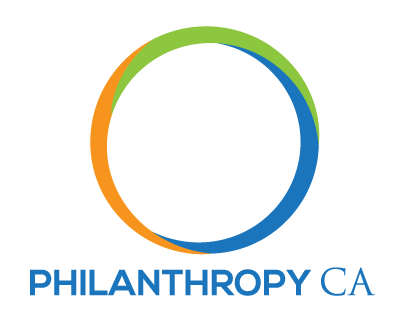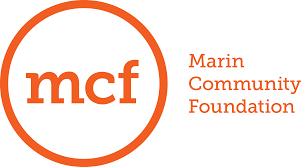Racism and the Economy: Understanding Racial Capitalism | 2022 Foundations of Racial Equity Session 2
About the Series
Anti-Black racism and white supremacy are embedded in philanthropy and in our institutions, often invisible to the majority of us, even as we work with intention towards equity and justice. As change agents within philanthropy, we are stretching to become our best selves, rise to the moment, and progress toward racial equity.
In order to undo systems of oppression, we need to understand the foundations of systemic anti-Black racism and white supremacy in our country. We cannot shift systems or our organizations without understanding how we got here, nor without looking at ourselves, at our relationships, and at our organizations themselves. The guiding purpose of Philanthropy California’s Foundations of Racial Equity (FRE) Series is to provide training for philanthropic practitioners to understand how anti-Black racism and white supremacy influence the field of philanthropy and to provide opportunities for action in your organizations based on what you learn here.
You can register for the full series at a discounted price or the individual sessions of your choice. We recommend attending Session 1 along with any other individual sessions you choose as it lays the groundwork for all session content.
About Session 2
In this second session of the Foundations of Racial Equity Series, we explore racial capitalism, which describes the current economic system of extracting social and economic value from a person of a different racial identity. Racial capitalism is based on the theft, exclusion and exploitation of the land, labor, and capital of people of color. Philanthropy—as a social, political, and economic strategy of society’s wealthiest people, mostly white men, and institutions that “do good” while moving wealth without tax exposure—upholds racial capitalism.
The two modules of this session of Foundations of Racial Equity will explore the history of racial capitalism and philanthropy and feature funders that are exploring how to disrupt cycles of racial oppression in their grantmaking and ideas for creating liberation in our economy. These interactive sessions will allow participants to engage with the material, reflect on their practice, and hear from peers about strategies and approaches they are initiating. Featured panelists will be: Alexandra Horton, Genentech Foundation, Jidan Terry-Koon, San Francisco Foundation, and Rebeca Rangel, Y&H Soda Foundation. Kayla Tolentino and Rob Hope of the San Francisco Foundation, and Christina Garcia, an independent consultant, will offer insights during the second module as well, based on their participation in the racial capitalism community of practice, hosted by Liberation in a Generation.
Join us to:
- Explore the foundations of racial capitalism, its historical roots, and current implications for people of color and antidotes to racial capitalism;
- Grapple with the role of philanthropy in upholding racial capitalism;
- Discuss approaches and practices in disrupting racial capitalism with philanthropic peers.
Cost to Participate
- Members: $150 per session or $675 for the full series
- Nonmembers: $200 per session or $950 for the full series
We are offering series and Individual discounts for organizations that want to register at least 4 people. Discounts apply to both members and nonmembers.
Series Discount: If you would like to register multiple team members for the series, please email [email protected].
- 4 for the price of 3
- 6 for the price of 5
Individual Session Discount
- 4 people attending one session for the price of 3
- 6 people attending one session for the price of 5
Session Info
Module A: Tuesday, August 2 | 10:00 am - 12:00 pm PT
Module B: Tuesday, August 16 | 10:00 am - 12:00 pm PT
Jeremie Greer
Jeremie Greer
Jeremie Greer has dedicated his life and career to the advancement of racial and economic justice. Growing up in the historically Black Rondo Neighborhood, in St. Paul, Minnesota, he has always been attuned to the intersection between race and economics. He began his career in the Columbia Heights and Shaw neighborhoods in Washington, DC, organizing youth and tenants to fight back against the economic forces rapidly gentrifying that community. Working at the national level in the federal government’s premier policy agency, the Government Accountability Office (GAO), and at two national non-profits, the Local Initiative Support Corporation (LISC) and Prosperity Now (formerly CFED), he has become a national policy expert on the causes and the policy solutions to close the racial wealth gap. Jeremie has a Bachelor’s Degree in Social Work from the University of St. Thomas, a Master’s in Public Policy from George Mason University, and is currently working on an Executive Education Certificate in Nonprofit Leadership from Harvard University’s Kennedy School. Jeremie is also a Soros Equality Fellow.
Solana Rice
Solana Rice
Solana Rice was raised by a Black, Midwestern family that made tremendous emotional and physical sacrifices to get by. Dedicated autoworkers, food & retail workers, entrepreneurs; her family gifted Solana with a tremendous work ethic and a passion for making the world a better place for people of color. Solana is a dedicated advocate aiming to shape the most vibrant, inclusive, and sustainable economy this country has yet to see. Prior to starting Liberation in a Generation, Solana was Director of State & Local Policy at Prosperity Now where, under her leadership, she built strong advocacy partnerships with organizations in the field and advanced dozens of policies in nearly half the states in the nation. Prior to joining Prosperity Now, Solana served as a director for financial security initiatives at PolicyLink. Solana has a Master’s in City Planning from MIT, where she researched the integration of individual development accounts into community development services. She holds a B.A. in architecture from Washington University in St. Louis. Solana is also a Soros Equality Fellow.


